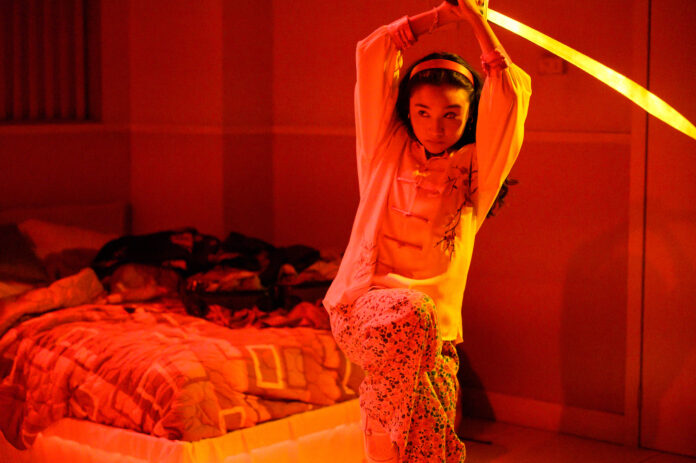Trigger warning: This review and the production it covers address the topics of sexual harassment, sexual assault, incest, and eating disorders.
At the traditional pre-show Shotgun Players raffle preceding the company’s new Anna Ouyang Moench play, the question asked on raffle stubs was “What’s your favorite revenge movie?” As it happens, the winning entry wrote 9 to 5.
In fact, Man of God‘s parallels with that classic film were impossible to deny. Like the Dolly, Lily, and Jane vehicle, the show (which runs through October 2 at the Ashby Stage) is also a comedy about a small group of women who have elaborate, cartoonish fantasies about murdering the man that done ‘em wrong. But Moench’s women are a quartet of Asian women rather than 9 to 5‘s white trio. They’re high schoolers rather than middle-aged office employees, their fantasies are more macabre, and the harm done to them is much more lasting.
These four Korean American characters are members of the New Soul Christian Church visiting Bangkok, Thailand for their first mission. There’s neo-feminist Jen (Joyce Domanico-Huh), profane “bad girl” Mimi (Lauren Garcia), childlike Samantha (Alexandra Lee), and the ever-pious Kyung-Hwa (Sharon Shao). We meet the four just as they’ve discovered a wireless camera under the toilet of their hotel room. As if the “ick” factor of that discovery weren’t enough, further examination of the camera reveals it to be the same one that their pastor (Chuck Lacson) uses to livestream his sermons every week—it’s even got a “Property of New Soul Christian Church” label.
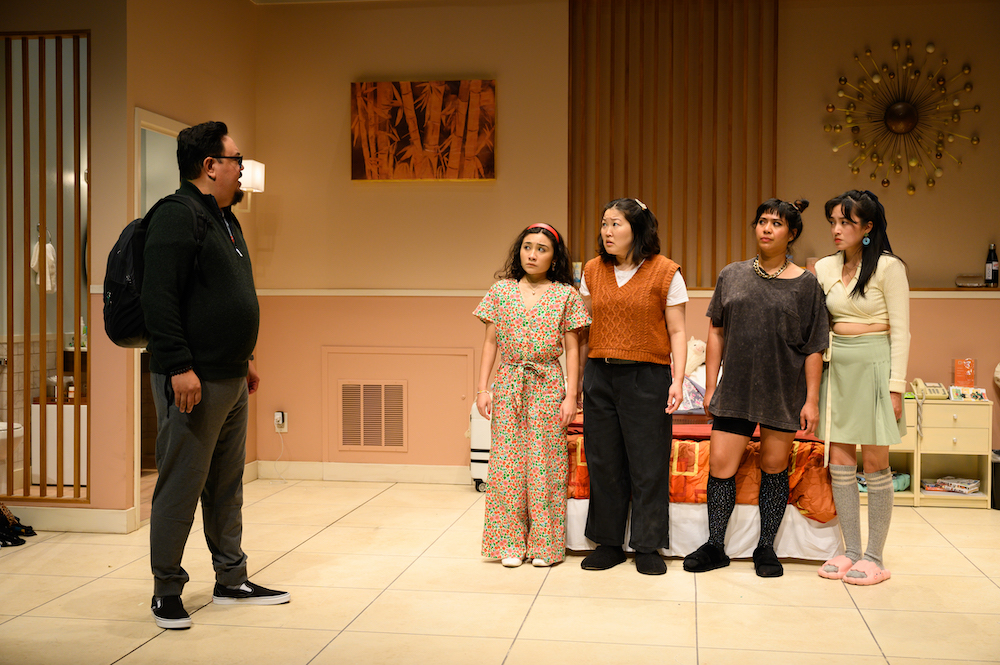
With the pastor being the only non-hotel staff person who’d have access to their room, he’s their one and only suspect. But our quartet don’t just get angry at this troubling perversion—they want to get even. One-by-one, they envision elaborate ways in which they’d like end the life of the man who violated their privacy. Well, almost all of them—Kyung-Hwa is a bit more forgiving of whatever “boys will be boys” (her words) instinct would lead to such mischief. Her argument holds less and less water as proceedings continue.
Whether or not 9 to 5 was a specific influence on the script, the other references make themselves all the more apparent in the fantasy sequences: Samantha’s is a wushu martial arts battle; Jen’s is a Michael Corleone-style restaurant hit; and Mimi’s involves a bathtub and a cooler. Yet, two other possible influences may be Reginald Rose’s Twelve Angry Men and John Patrick Shanley’s Doubt. Like the jurors of the former play, the characters here commit to an idea and convert the others one-by-one, until it’s the entire group against one holdout who digs their heels in further. The fact that this holdout is the one most devout to their faith lends an interesting context to this concept of individualism versus group think. But, like the latter play, the alleged impropriator is considered “guilty” through circumstantial evidence. Is the pastor’s alleged indiscretion worth his death sentence? Depends on who you ask.
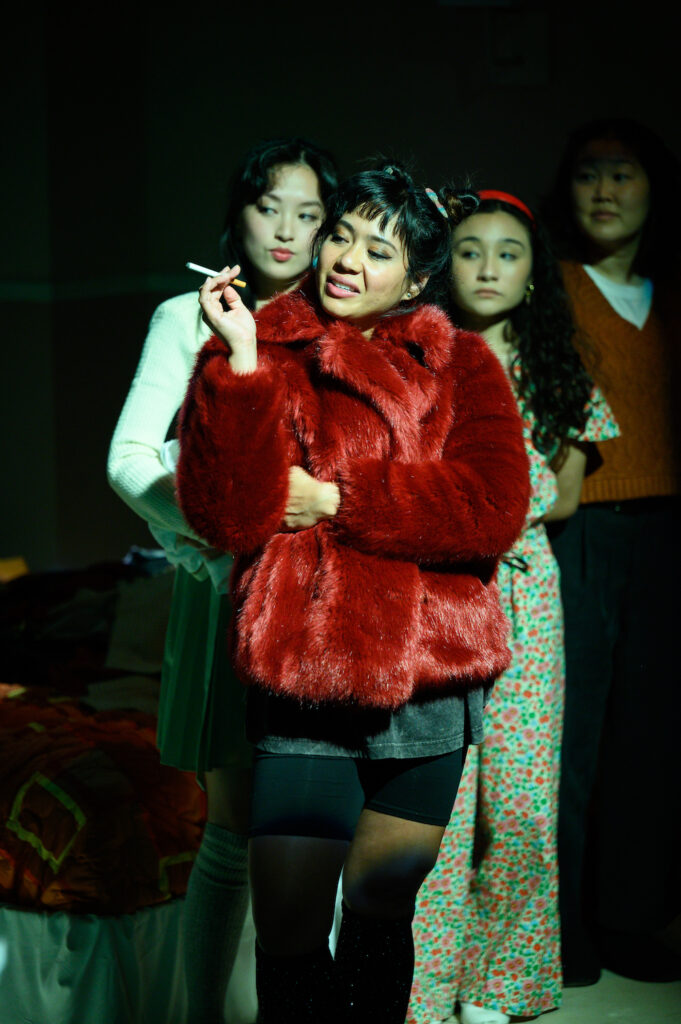
Therein lies the play’s hook: it’s not just the discovery of the camera—it’s that the camera is the last straw after a lifetime of being harassed. As the women act out their fantasy killings, they use the pastor as the personification of every creepy older dude who’s hugged them too long, every male sibling who got off on torturing them, every cat-caller who didn’t care that they were underage. Worst of all, one of the four goes on a stream-of-consciousness tangent and accidentally let’s slip the brutal details of being raped by a family member. Of course these women are out for blood.
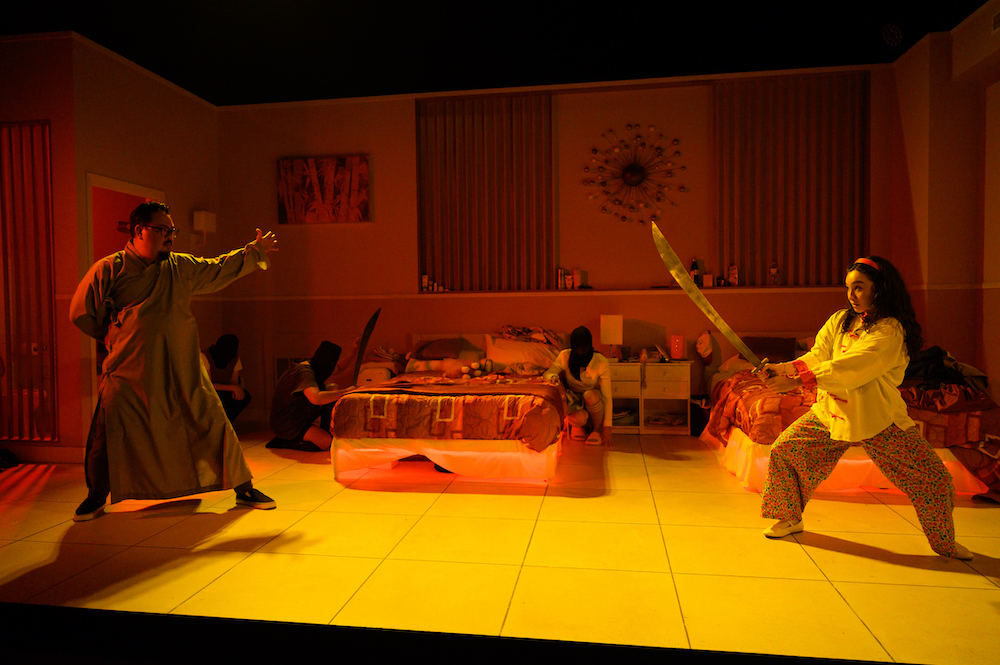
You may not know it from such a dark description, but this actually is a comedy. The laughs aren’t restricted to any one character (though bad girl Mimi is the obvious one to joke about oral and anal sex as a way of remaining a virgin before marriage), and actually do a lot to flesh out our stars. Young Samantha is unaware of Thailand’s reputation for sex tourism. A fight between Mimi and Kyung-Hwa (choreographed by Raisa Donato) gets laughs not for being too slapstick-y, but for its heightened realism. That the fight begins as a result of Mimi mocking Kyung-Hwa’s bulimia only highlights the cruelty of which the four are capable. They aren’t heroes, just relatable teens.
So relatable are the women and their dilemma that the ending is a bit of a letdown. Everything points to one logical conclusion—but Moench doesn’t go there. Granted, her choice is far more realistic than what the audience was expecting, as it’s clear that the women couldn’t possibly imagine the true long-term consequences of the plan. Yet, Moench’s choice is reminiscent of the ending to Suzan Lori-Parks’ White Noise, in that the symbolic resolution is unsatisfying on a visceral level.
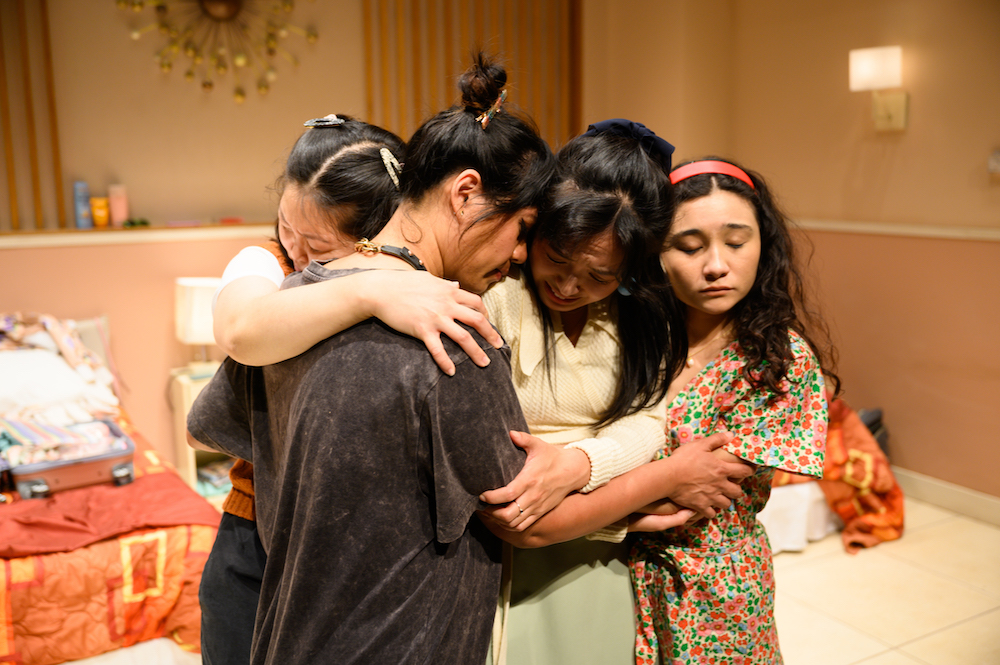
Director Michelle Talgarow (fresh off of TheatreF1rst’s Balikbayan Box) definitely knows how to get strong, visceral reactions out of her cast and audience. She conducts with the precision of a music producer behind a mixing board, creating over-the-top moments that had us howling, and crafting a final scene so quiet that I wrote in my notes “You can cut the tension with a knife!!” In addition to her talented quartet of actors, Talgarow is aided by Donato’s fight choreo, which gets great mileage out of a wushu sword fight, despite a confining stage layout. Randy Wong-Westbrooke’s ’60s-influenced set, with an interesting see-through design on the bathroom wall, and its moving panel revealing the “death tub,” also helps.
Before the show even began, my Aranet4 began reading 1039ppm; a number that would jump to 3002ppm by the end of the 90-minute show. Other than that, most of the audience’s anxiety will no doubt come from the thought of not being able to enact our own revenge fantasies with as much glee as Talgarow and her cast. Man of God may not stick its landing, but when it flies, it flies high.
MAN OF GOD runs through October 2. Ashby Stage, Berk. Tickets and more info here.


